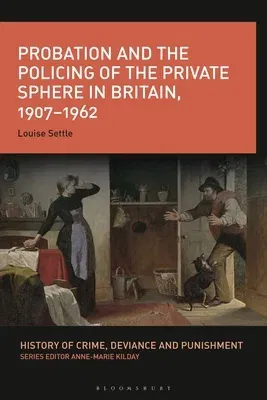In 1907 the Probation of Offenders Act introduced a system which allowed
offenders to be rehabilitated at home under supervision, rather than
being sent to prison. This book explores how the probation system was
used to regulate the private lives, emotions and behaviours of people in
Britain between 1907 and 1962.
Access to the private sphere, both physically and psychologically, meant
that the probation system was particularly well-suited to offences
related to intimate and personal relations. With each chapter focusing
on a particular type of offence, including wife assault, attempted
suicide, male sexual offences and female prostitution, Settle shows how
experiences of the probationers were shaped by the everyday practices of
probation, and assesses the extent to which probation was successful in
rehabilitating offenders and protecting the public. Also examining the
role of probation officers in marriage reconciliation, the book explores
how ideas about gender and domesticity were crucial to both the process
of rehabilitation and the endeavour to make the home a safe environment
in which these domestic ideals could come into fruition. Probation and
Policing of the Private Sphere in Britain enriches our understanding of
the role of the state in policing, monitoring and promoting the
well-being of its citizens, and explores the nuances of probation's dual
purpose as a form of social control as well as a social work service
designed to help the most vulnerable in society.

